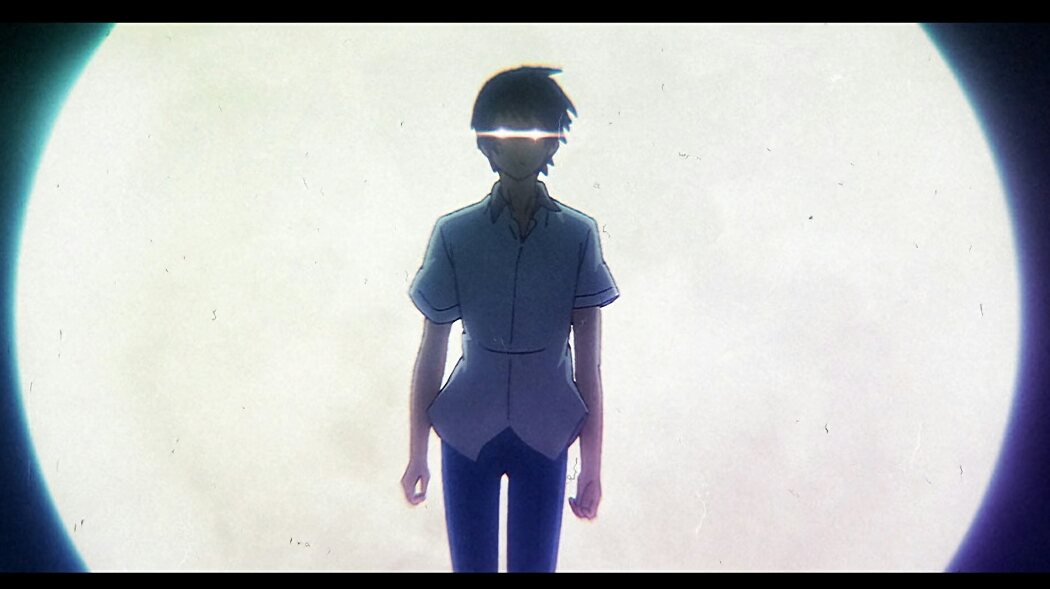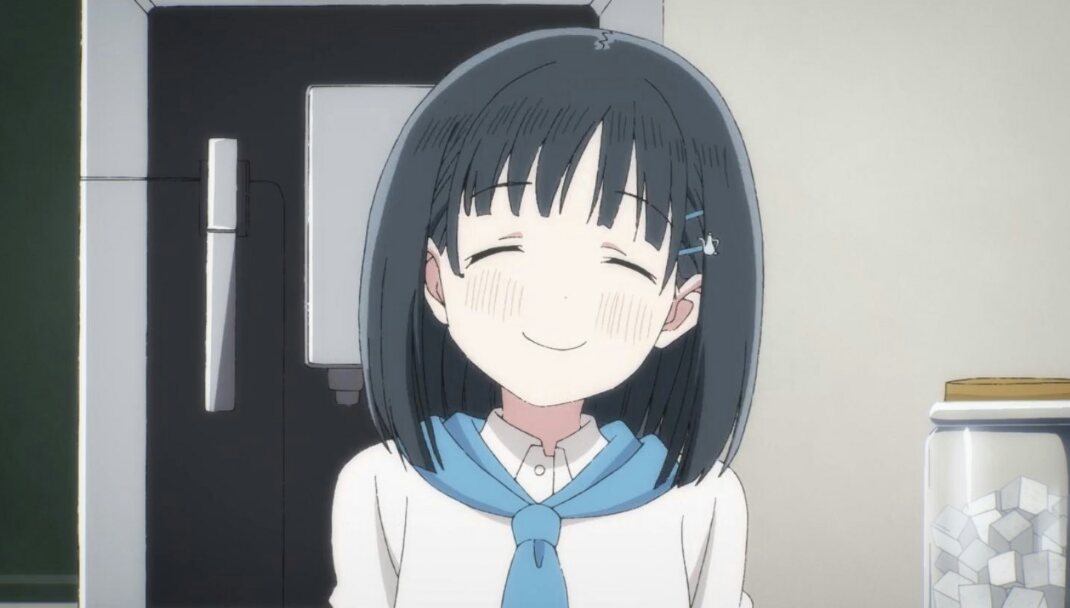SEASONAL PRATTLE
The way Super Cub navigates its material is yet again pleasing this week – with plenty of spacious, open-air segments that serve to roll in the new Autumn atmosphere and set the mood for what’s to come. This series is generally at its best when it fully surrenders to its own easygoing identity, and fortunately, episode seven featured a cultural festival that was low on anxiety. Putting Koguma in a situation to directly help the festival in a major way was a strong choice – while Koguma is largely reserved, having her situated with someone as openly social and dedicated to the event as Shii was a nice change in pace, and while more subtle, is already impacting Koguma’s character for the better. Super Cub is in a good position to make greater use of Shii over the next few weeks and I’m looking forward to seeing that happen.
Vivy: Fluorite Eye’s Song (9)
“Wit isn’t shy at all at reminding viewers how good they are in motion, properly utilizing space or conveying impact”
Delivering yet again, Vivy: Fluorite Eye’s Song is apparently determined to be nothing less than a firmly rewarding watch – offering a ninth performance that’s not only thoroughly tethered to propulsive design and fluent storytelling, but just outright sharp in corralling several small nuances to make it all click. Without a doubt, there’s a ton of production snippets that you can applaud here especially when Diva really starts letting the fists fly, and Wit isn’t shy at all at reminding viewers how good they are in motion, properly utilizing space or conveying impact. It’s pretty clear that this series has a very deliberate grasp on the switches it wants to flip – the resolving of Ophelia and Antonio is testament to that alone – and the Diva to Vivy transfer is a finely polished set of beats that do well to reel the show back into its core thematic interest. Vivy: Fluorite Eye’s Song has been dependable in capping off its arcs with appreciable power – and this ending is no different.
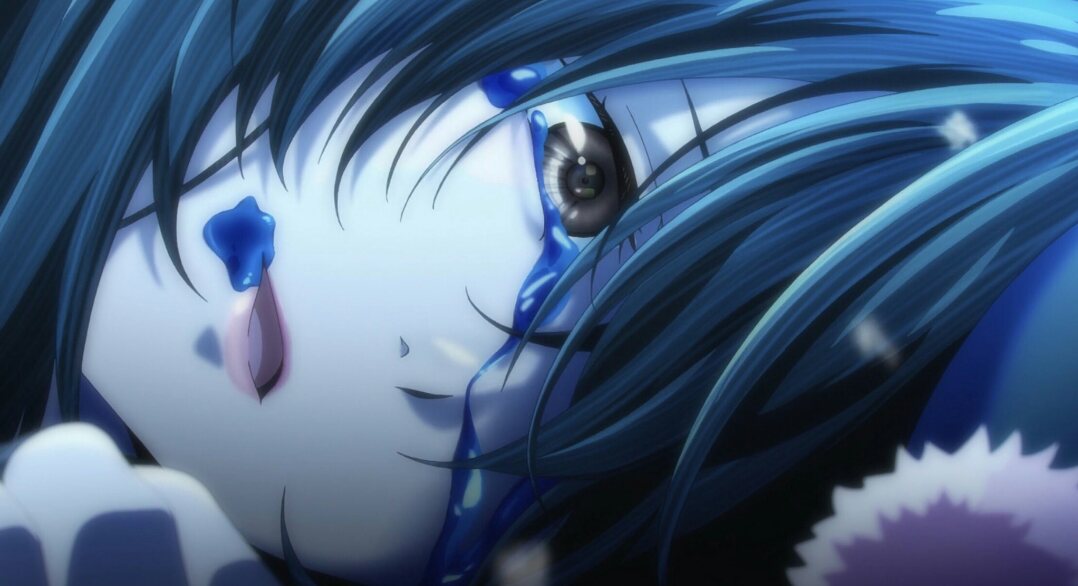
Shadows House (7)
“Complementing its consistently efficient and intriguing story with an injection of character play that just makes the time spent with it all the more sweeter”
Shadows House upped the ante this week, complementing its consistently efficient and intriguing story with an injection of character play that just makes the time spent with it all the more sweeter. Given the constraints of the house and the competitive nature of the debut, this series hasn’t really had that many real opportunities to just let its cast bounce off each other and shoulder an episode predominantly on their exchanges. So it’s nice seeing Emilico and gang not only working together in distinctive ways that allow their personalities to shine through – but for that to translate into some neat implications for the story and generally land as a charming time. I’m not really sure how much more cooperation and shared screentime we’ll get from our dolls when this test is all said and done this season, but after this episode, I hope it’s plenty.
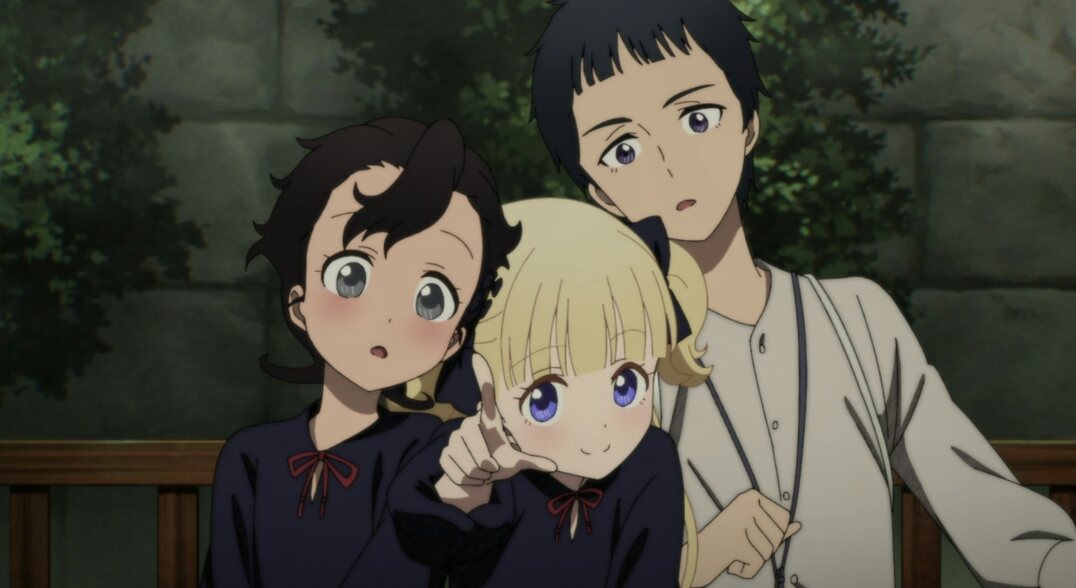
Fumetsu no Anata e (6)
“There’s only so much juice you can get out of Fushi learning preliminary words and things”
Fumetsu no Anata e pushes on, resetting the depressing energy brought in from last week’s showing with a more emotionally neutral performance. And it’s fine all in all – there’s only so much juice you can get out of Fushi learning preliminary words and things, and episode six isn’t particularly equipped be it textually or visually to make that experience all that exciting or engaging. The late second-half creator encounter is interesting but simply not explored enough to be more than that, and the flashes we get of what our time in Takunaha will possibly offer seems promising. I’m perfectly okay with episodes like this, but I can see it not being everyone’s cup of tea purely from an entertainment standpoint.
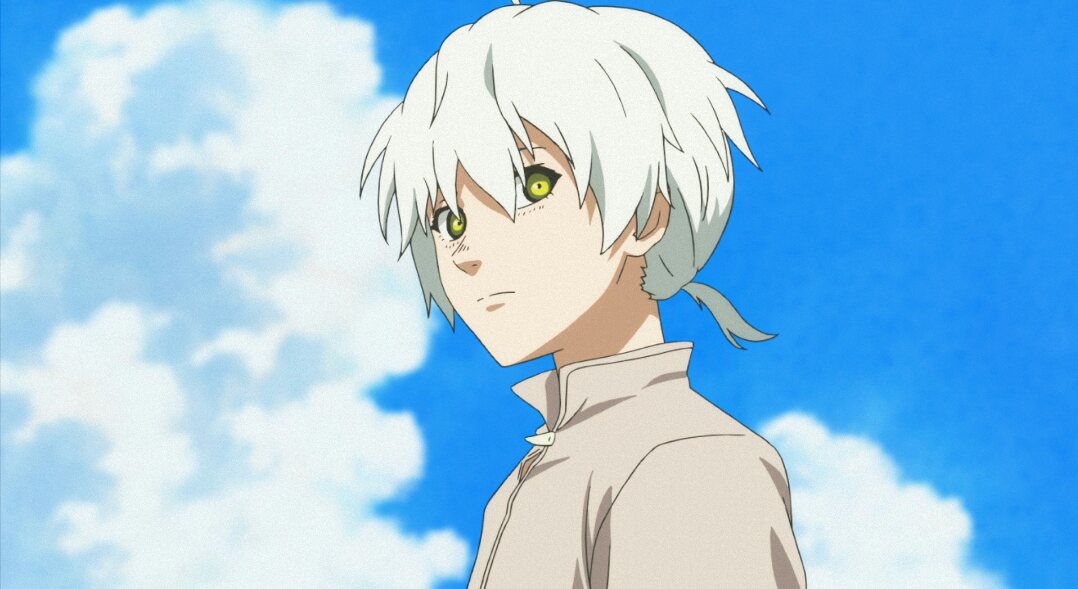
86 (7)
“Anime attempting to be this translucently sad is rarely a good thing”
A fairly practical bit of storytelling from 86 this time around, and a good example of how Asato really embraces the sorrow of the narrative and is more than willing to continue serving that – and essentially just that – for viewers to consume with no true end in sight. That can be a real problem – anime attempting to be this translucently sad is rarely a good thing, because that often involves a lot of desperate emotional appeals and other heavy-handed framing to get it done. Episode seven spends a lot of energy pushing the same somber sentiment, and though most of what it conveys lands on its feet in terms of function, the truth is, 86 doesn’t actually need to sketch the Spearhead unit’s misfortune as hard as it does and thus, the five-year term reveal is basically putting a hat on a hat at this point – pulling excessive emotional levers and nothing more.
86 has some attractive craft tools in its kit, more substantive concepts than its genre’s average, and particularly this week,a few nice one-liners courtesy of Raiden’s speech at the end. But sadly, that doesn’t diminish its lack of touch and how needlessly thirsty it is when portraying its internal woes here.
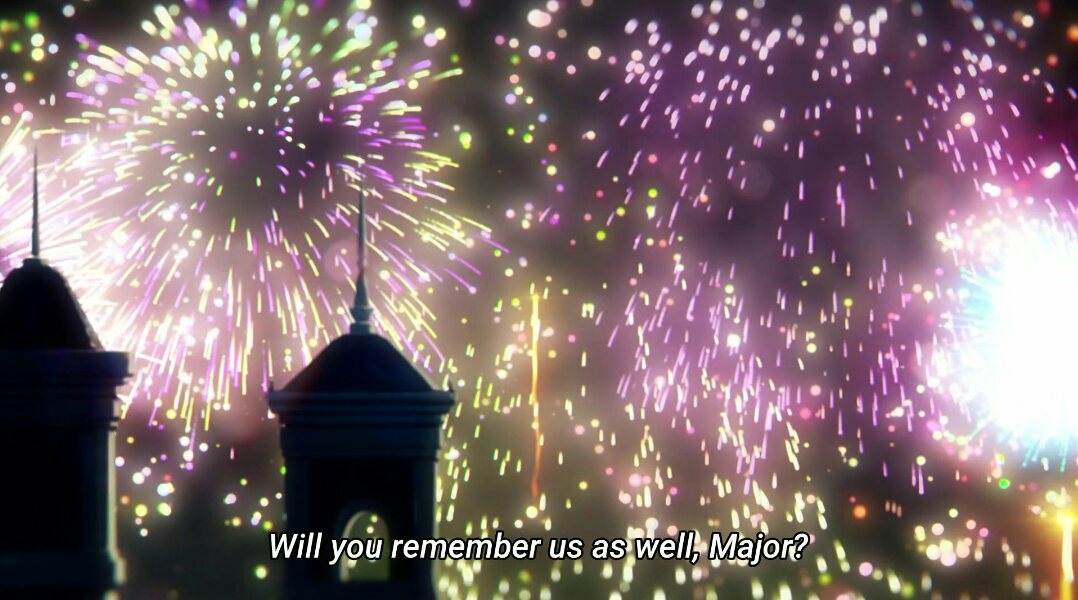
Higehiro (7)
“As if they’re deliberately tone-deaf to how humans interact”
Higehiro proceeds with a seventh episode that sees its fair share of ups and downs. Virtually every crevice this week that has Mishima attempting to converse is both simultaneously light novel-ish in an immediately abrasive way but also surprisingly accurate and arguably needed to some degree. And for that, the pleasing wholesome bits of Sayu and Yoshida cleaning or seven’s most relevant narrative stroke of another Ogiwara showing up at the end is at the very least counterbalanced by this jealous coworker’s antics. While a lot of what Mishima says is true to the character that she’s addressing, both her exchange with Gotou and Yoshida are structured almost as if they’re deliberately tone-deaf to how humans interact – ending up as an off-putting, overly forward experience that feels heavily artificial when the smoke clears. I’m not sure if the author only intends to announce a mix of practical concerns and plastic drama through Mishima’s character, but given the amount of screen time she’s getting, I really hope there’s more use to her than this moving ahead.
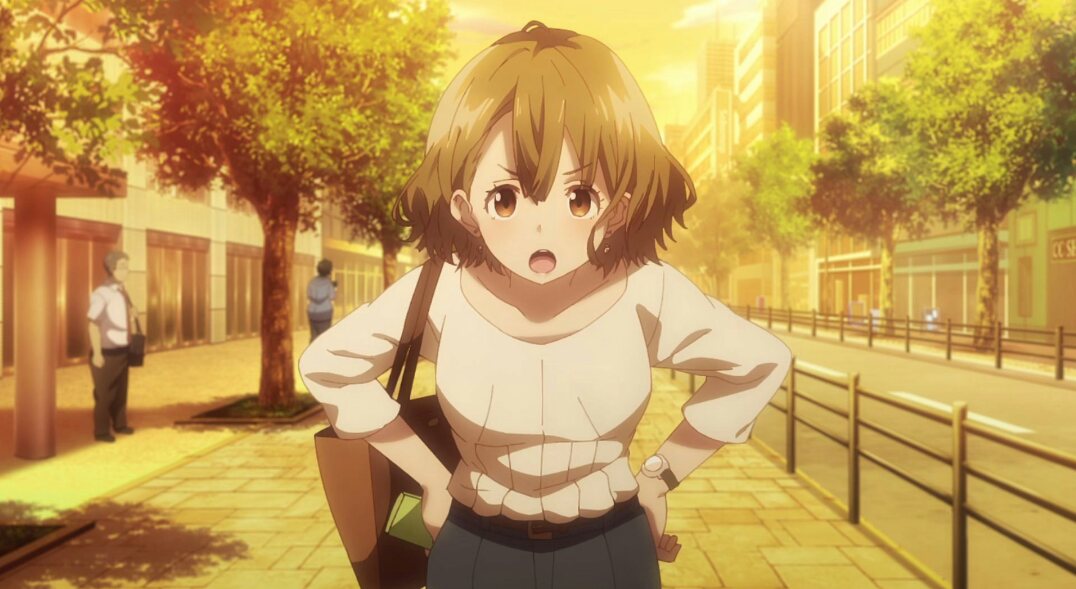
Mashiro no Oto (8)
“Both hampered by a foundation of thin writing and a brand of delivery that once again finds itself all too stale with how conventional it is”
Mashiro no Oto is still crawling towards Umezono Academy actually performing, and the process in doing so is right up there with some of the series’ flattest material. Generally speaking, episode eight is both hampered by a foundation of thin writing and a brand of delivery that once again finds itself all too stale with how conventional it is – never really fostering any notable creativity or substance behind Ushio or Mai’s chunks of the narrative and more or less echoing those faults when it came to Yui’s vignettes. It’s obviously tough to put together a praiseworthy story when you’re sticking so hard to standard fare beats – but it’s so much worse when your execution is this consistently sitting in neutral.
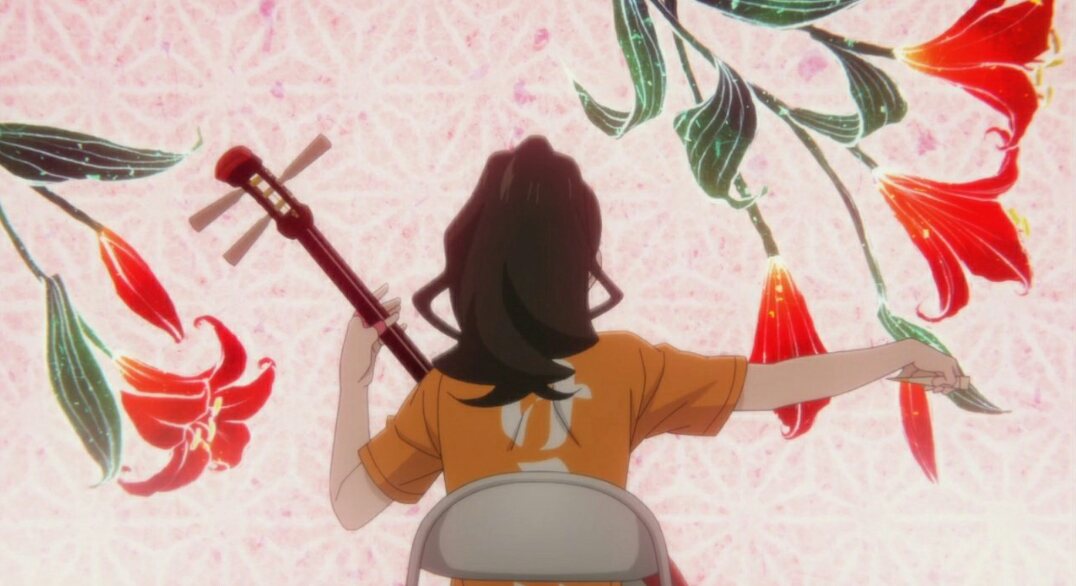
Osananajimi ga Zettai ni Makenai Love Comedy (6)
“Slathered in edgy, amateurish composing that it’s easy to feel enough second-hand embarrassment to close the tab out right there”
Osamake returns, immediately promoting the second of its problems to the forefront – making the quick shift of being primarily horrendous when it comes to writing a script, to chiefly soaking viewers in cringe instead. Episode six is overly busy, with no less than three narrative threads running throughout it in which two of them, Tetsuhiko’s family issues and insight/resolution to Kuro’s amnesia, are both haphazardly tacked on. And while the amnesia handling and implications for Kuro’s character that stem from it are particularly bad enough to tank this episode on its own, its deficiencies pale in comparison to the centerpiece of this week – the commercial competition – which not only doesn’t even show Momo’s commercial, thus defeating any sense of competition, but delivers a video that’s so slathered in edgy, amateurish composing that it’s easy to feel enough second-hand embarrassment to close the tab out right there. The only upside here is that with this episode’s passing, Osamake is thankfully halfway over.
